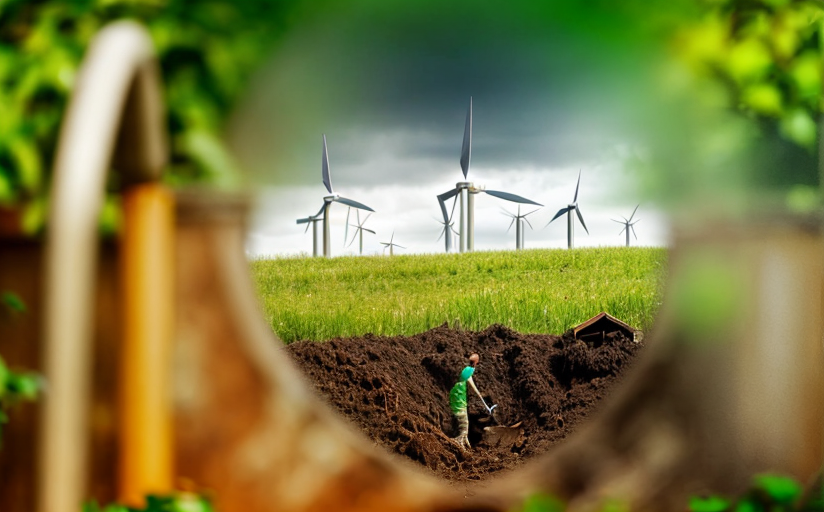Reviving Your Garden through Composting: A Sustainable Choice
Composting at home is a simple and advantageous technique that helps revitalize your garden while operating in a sustainable way. It is an environmentally friendly method that promotes the overall health of your garden by improving soil fertility and enhancing its moisture-holding capacity.
Why Choose Composting?
Composting is an effective way of managing household organic waste while providing nutrient-rich material for your garden. It minimizes the waste heading to landfill, reduces the use of harmful chemical fertilizers, and contributes to cutting down carbon footprint by reducing methane emissions from landfills. Made from kitchen and garden waste, compost significantly improves your garden's soil texture, water retention, aeration and nutrient content. This whole process forms a sustainable cycle, turning kitchen and garden waste into valuable material that enhances the vitality of your garden.
The Composting Process
Creating a compost pile at home involves a few simple steps:
- Choosing the Right Site: Select a dry, shaded area near a water source for your compost pile or bin.
- Adding Green and Brown Materials: Composting requires a balance of two types of organic waste – ‘greens’ offer nitrogen (fruit and vegetable peels, coffee grounds) and ‘browns’ provide carbon (twigs, leaves).
- Composting: Add these materials in layers, microorganisms in the soil will start breaking down the material into compost.
- Turn the Compost Pile: Turn over the compost pile every few weeks using a pitchfork or shovel. This helps aerate the pile and speeds up the composting process.
- Usage: Once the composting process is finished, you will be left with a nutrient-rich, humus-like material that can be added to your garden.
What Can Be Composted?
Most organic waste can be composted. This includes: fruit and vegetable scraps, eggshells, coffee grounds, yard waste such as grass clippings, fallen leaves, and small branches, in addition to non-glossy newspaper and cardboard. Avoid composting dairy and meat products, diseased plants, pet waste, or plants treated with pesticides, as these can create harmful compost.
Ideal Conditions for Compost
For an effective compost pile, maintain a balanced ratio of browns and greens, ensuring proper moisture and aeration. Compost piles should be as moist as a wrung-out sponge and should be turned regularly for aeration.
Troubleshooting Tips
Some common composting issues include: unpleasant odors, pests, and a compost pile that is not heating up. These issues often stem from an imbalanced carbon-to-nitrogen ratio, insufficient moisture, lack of aeration, or improper materials added to the compost pile.
Debunking Composting Myths
Despite its many benefits, composting at home is often overlooked due to persistent myths such as composting is too complicated, it smells bad, or it attracts pests. On the contrary, if done correctly, composting is a simple, odor-free process that does not attract any more pests than regular gardening does.




















Comments
Leave a Comment